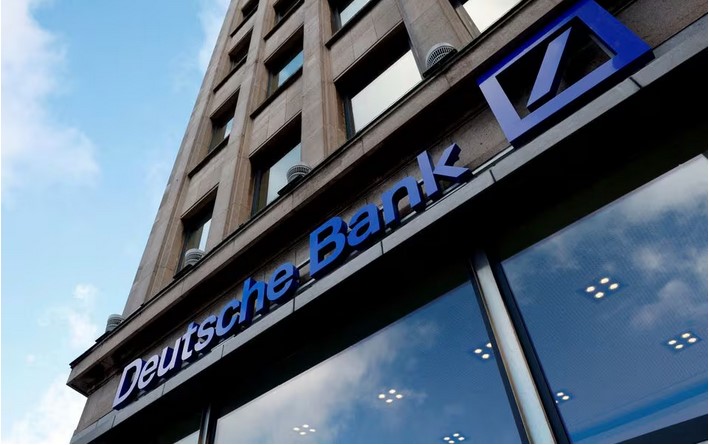
In the dynamic landscape of financial markets, forecasts and predictions often shape investor sentiments. Deutsche Bank, a prominent player in the financial sector, recently made waves by forecasting a 12% upside to the S&P 500 by the end of the next year. This bold prediction comes against the backdrop of potential economic challenges, including the specter of a mild and short recession in the United States. Let’s delve into the intricacies of Deutsche Bank’s forecast and the factors influencing this optimistic outlook.
Corporate Earnings Resilience Amidst Economic Uncertainty
Deutsche Bank analysts project the S&P 500 to reach 5,100 points by the close of 2024, a notable 8.5% higher than the median forecast of 33 other strategists polled by Reuters. Central to this bullish outlook is the expectation of resilient corporate earnings. Even in the face of a projected “mild short” recession, Deutsche Bank anticipates a 10% increase in earnings for companies within the benchmark index. Furthermore, if the U.S. gross domestic product sees a 2% growth, the bank foresees a substantial 19% rise in earnings.
Earnings Growth: A Pillar of Support for Valuations
The strategists at Deutsche Bank highlight the crucial link between earnings growth and valuations. They assert that if earnings growth aligns with their projections, valuations will likely remain well-supported, maintaining the index within the upper echelons of its range. This aligns with the typical market response to an anticipated pickup in earnings growth.
Core Inflation, Federal Reserve, and Benchmark Index Stability
Beyond corporate earnings, Deutsche Bank factors in the decline in core inflation to pre-pandemic levels as another stabilizing force. This decline, without a concurrent slowdown in growth, could signal that the Federal Reserve won’t resort to rate cuts unless a full-blown recession materializes. Such confidence in the Fed’s measured response contributes to the overall stability of the benchmark index.
Forecasting a “Mild” U.S. Recession and Policy Rate Cuts
However, Deutsche Bank’s optimism is not without caution. The bank predicts a “mild” recession in the first half of the coming year, triggered by the rollover effect of higher interest rates. This anticipated economic downturn prompts the bank to forecast a substantial 175 basis points cut in policy rates by the Federal Reserve. The expected economic growth for the year ahead is a modest 0.6%, reflecting the challenges the U.S. economy might face.
BofA Global Research’s Counter View
In contrast to Deutsche Bank’s bullish stance, BofA Global Research presents a more conservative outlook. They anticipate the benchmark to reach 5,000 by the end of the next year, citing declining macro concerns and the Federal Reserve’s decision to pause rate hikes as contributing factors. This divergence in predictions underscores the complex nature of forecasting in a dynamic financial environment.
Conclusion: Navigating Uncertainty with Informed Insights
In conclusion, Deutsche Bank’s projection of a 12% upside to the S&P 500 is a noteworthy perspective in the ever-changing financial landscape. While predicated on corporate earnings resilience, the forecast takes into account the potential headwinds of a mild recession. Investors must weigh these insights against alternative forecasts, such as that of BofA Global Research, to make informed decisions in the face of uncertainty.
Frequently Asked Questions (FAQs)
- How reliable are financial forecasts, considering the inherent unpredictability of markets? Financial forecasts provide valuable insights but come with inherent uncertainties. They should be considered as informed perspectives rather than guarantees.
- What factors contribute to the resilience of corporate earnings during a recession? Resilience in corporate earnings during a recession can be influenced by diversified revenue streams, cost management, and industry-specific factors.
- Why does Deutsche Bank consider the decline in core inflation a stabilizing factor for the S&P 500? A decline in core inflation without growth slowdown suggests the Federal Reserve may not need to cut rates unless a recession occurs, providing stability to the benchmark index.
- How might higher interest rates lead to a U.S. recession, as predicted by Deutsche Bank? Higher interest rates can impact borrowing costs and economic activity, potentially leading to a slowdown and, in some cases, a recession.
- What should investors consider when faced with divergent forecasts from different financial institutions? Investors should assess the underlying assumptions and methodologies of forecasts, considering a range of perspectives to make well-informed decisions.
